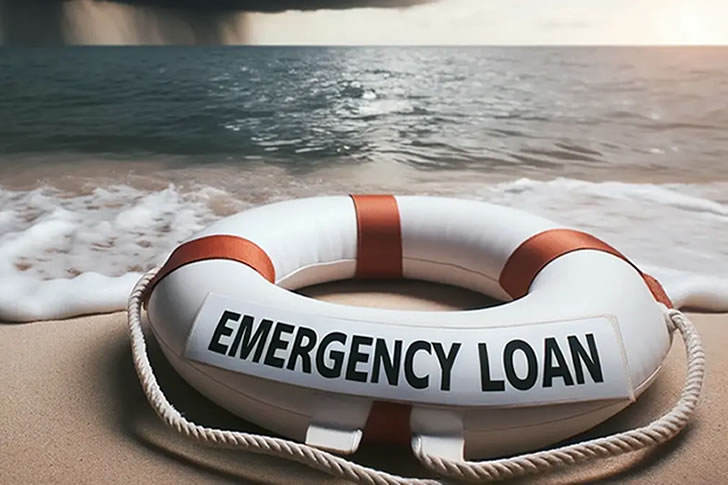Guide To Getting Instant Emergency Loans In 2024
In 2024, navigating the landscape of emergency loans in New Zealand can be daunting. Financial emergencies can occur at any time, and having access to quick, reliable funding is crucial. This guide aims to provide you with detailed, factual information to help you secure the best emergency loans that fit your needs without falling into financial traps.

Understanding Emergency Loans in New Zealand
What is an Emergency Loan?
An emergency loan is typically a short-term loan designed to help individuals cover immediate financial needs until their next payday. Unlike traditional loans, emergency loans often have a quicker approval process, sometimes providing funds within the same day.
Types of Emergency Loans Available
- Payday Loans: These are small, high-cost loans that are due on your next payday.
- Personal Installment Loans: These loans are larger and can be paid back over several months or years.
- Credit Card Advances: This involves withdrawing cash using your credit card.
- Overdraft Protection: This is a facility on your bank account that allows you to withdraw more than your balance up to a certain limit.
Key Features to Consider
When searching for an emergency loan, consider the following features:
- Interest Rates: These can vary widely. Payday loans often have rates as high as 1.5% per day, equating to an annual percentage rate (APR) of over 500%.
- Fees: Look out for application fees, late payment fees, and early repayment fees.
- Loan Term: Emergency loans can have terms ranging from a few weeks to several years.
- Repayment Flexibility: Some lenders offer flexible repayment options, such as the ability to choose your repayment dates.
How to Find the Best Emergency Loans
1. Compare Lenders Thoroughly
Utilize online comparison tools specifically designed for New Zealanders, such as those provided by Consumer NZ or MoneyHub. These platforms compare interest rates, fees, and customer reviews.
Emergency Loans Comparison in New Zealand – 2024
| Lender Name | Price Range (APR) | Highlights |
|---|---|---|
| QuickCash NZ | 49% – 189% | Same-day funding, no early repayment fees |
| MoneyShop | 19.95% – 29.95% | Flexible loan terms, low interest for good credit |
| Save My Bacon | 49.95% – 174.2% | Quick online application, transparent fees |
| Harmoney | 6.99% – 24.69% | Offers personal loans with competitive rates |
| Cash Relief | 49.5% – 200% | Small loans up to $600, fast processing |
| Avanti Finance | 9.95% – 29.95% | Offers personal and emergency loans, flexible repayments |
| MyFinance | 13.95% – 24.95% | Loans up to $50,000, flexible loan terms |
| Superloans | Fixed fee (varies) | No interest, fixed fee based on borrowing amount |
| Ferratum | 18.9% – 365.25% | Mobile app for easy application, rapid funding |
| Credit Simple (Instant Loans) | 8.95% – 22.95% | Low-interest options, quick approval process |
2. Check the Legitimacy of the Lender
Ensure the lender is registered with the Financial Service Providers Register (FSPR) in New Zealand. This registration provides a level of security and legitimacy.
3. Read Reviews and Testimonials
Check feedback from other borrowers to gauge the lender’s reputation. Websites like Trustpilot and local forums can be valuable resources.
4. Understand the Fine Print
Carefully read the loan agreement to understand all obligations, fees, and rates. If necessary, seek advice from a financial advisor.
Q&A Section
Q: What factors should I consider when choosing an emergency loan? A: Evaluate interest rates, fees, the flexibility of repayment terms, and the speed of funding. Also, consider the lender’s reputation and customer service.
Q: Are there any risks associated with emergency loans? A: Yes, high-interest rates and fees can lead to a debt spiral if not managed properly. It’s crucial to read the loan agreement thoroughly.
Q: How can I ensure the lender is reputable? A: Check if the lender is registered on the Financial Service Providers Register (FSPR) and read reviews from other borrowers.
Financial Advice for Managing Emergency Loans
Create a Budget Plan
Before taking out an emergency loan, assess your financial situation. Create a budget to ensure you can manage the loan repayments alongside your other financial obligations.
Consider Alternative Financing Options
Before opting for an emergency loan, consider alternatives such as:
- Community Lending Services: Some community organizations offer short-term loans with lower rates.
- Family and Friends: Sometimes borrowing from people you know can be a no-interest or low-interest option with more flexible repayment terms.
Emergency Fund
Start building an emergency fund. Regularly setting aside a small amount of money can build a financial buffer and reduce the need for emergency loans in the future.
Legal Regulations in 2024
New Zealand has specific laws regulating short-term loans to protect consumers from predatory lending practices. For instance, the Credit Contracts and Consumer Finance Act (CCCFA) mandates that lenders must follow responsible lending practices and clearly disclose all terms and costs.
Conclusion
Finding the best emergency loan in New Zealand requires careful consideration of various factors including the type, terms, fees, and lender reputation. By thoroughly researching and comparing options, understanding your financial capability, and being aware of legal protections, you can secure a loan that meets your emergency needs without compromising your financial health.
Remember, the best approach in managing financial emergencies is preparation. Establishing a robust emergency fund is the most effective way to ensure you can handle unexpected expenses without the need for high-cost loans.
References
- https://www.prontofinance.co.nz/emergency-loans/
- https://www.quickloans.co.nz/loans/emergency-loans/
- https://seedcash.co.nz/emergency-loans-nz











Recent Comments